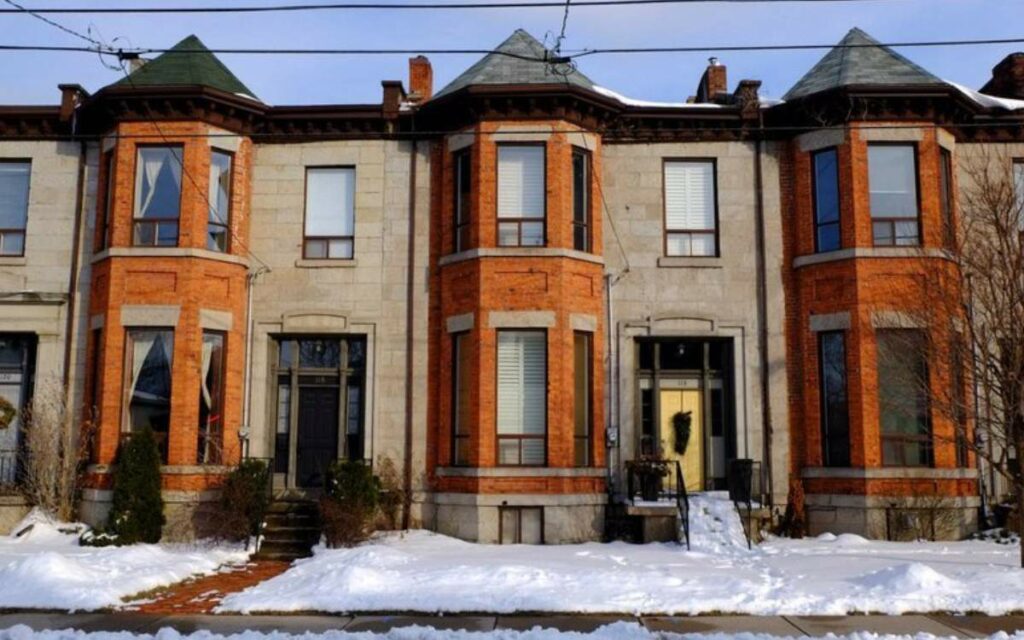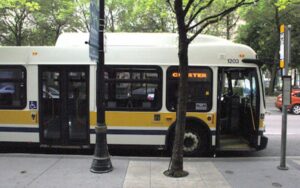
Similar rules and licencing requirements for short-term rentals have been in place in Toronto since 2019. Photo credit: Rentals.ca
Starting June 2023, the City of Hamilton will officially be placing restrictions and licensing requirements on any property within municipal limits that citizens wish to rent out short-term, such as on Airbnb.
At a Wednesday, January 25 City Council meeting, a 13-3 vote passed the new policy.
Among the restrictions, short-stay rentals will be limited to the “primary residence” of a homeowner, meaning that those who own investment properties for the sake of running an Airbnb will no longer be able to do so.
Hamiltonians will only be able to rent out one property short-term and must provide proof that it is their primary residence when they register with the city.
The goal is to return long-term rentals to the housing market in an attempt to bring down rental prices and also help curb complaints from neighbours about entire houses being rented out short-term, sometimes resulting in safety issues and noise complaints.
Short-term rental operators will also be subject to licensing, registration, inspection requirements, and fees. Toronto has a similar by-law that was enacted in 2019.
The original proposal even included a 120-day yearly limit on short-term rentals, but that provision was eventually shut down at the committee stage. However, a unit or house will not be allowed to be rented for more than 28 consecutive days.
That means that short-term rentals will be effectively limited to rooms within a house, basements, houses that are temporarily empty (such as a family going on vacation and renting out their house while they are gone), and/or secondary structures on the same property as a person’s primary residence.
The biggest impact on the short-term rental market will likely be decreasing the number of entire homes that are available for rent. In turn, the move will also likely reduce the short-term rental supply in general, which could drive up short-term rental prices.
The licensing and registration deadline is May 31, 2023. Short-term rental operators will have to pay a $70 application fee plus other fees depending on the type of unit they will be renting out. Short-term rental broker companies, such as Airbnb, will be required to pay a one-time $5,000 fee and an annual renewal fee of $60.
City staff will be working with the province to create non-compliance enforcement rules.
The cost to run the program will be about $286,000 annually, although the city expects that the new fees will cover all respective costs.
There were multiple objections to the new provisions when Council debated the policy.
Councillor Esther Pauls, who voted against the new restrictions, insisted that short-term rentals provide much-needed housing for foreign students and short-term contract workers, including medical students who have placements at Hamilton hospitals.
Lou Piriano, Realtors Association of Hamilton-Burlington (RAHB) 2022 president, wrote to Council that RAHB believes the new rules are “unfairly restrictive” and that the group supports “building and developing housing supply rather than infringing on private property rights.”
Interestingly, Piriano also says that RAHB is “supportive of the licensing portion of the pending by-law” since they believe in the “principle of fair and equitable taxation.”

Based in Hamilton, he reaches hundreds of thousands of people monthly on Facebook, Instagram, TikTok, and Twitter. He has been published in The Hamilton Spectator, Stoney Creek News, and Bay Observer. He has also been a segment host with Cable 14 Hamilton. In 2017, he received the Chancellor Full Tuition Scholarship from the University of Ottawa (BA, 2022). He has also received the Governor General’s Academic Medal. He formerly worked in a non-partisan role on Parliament Hill in Ottawa.


















